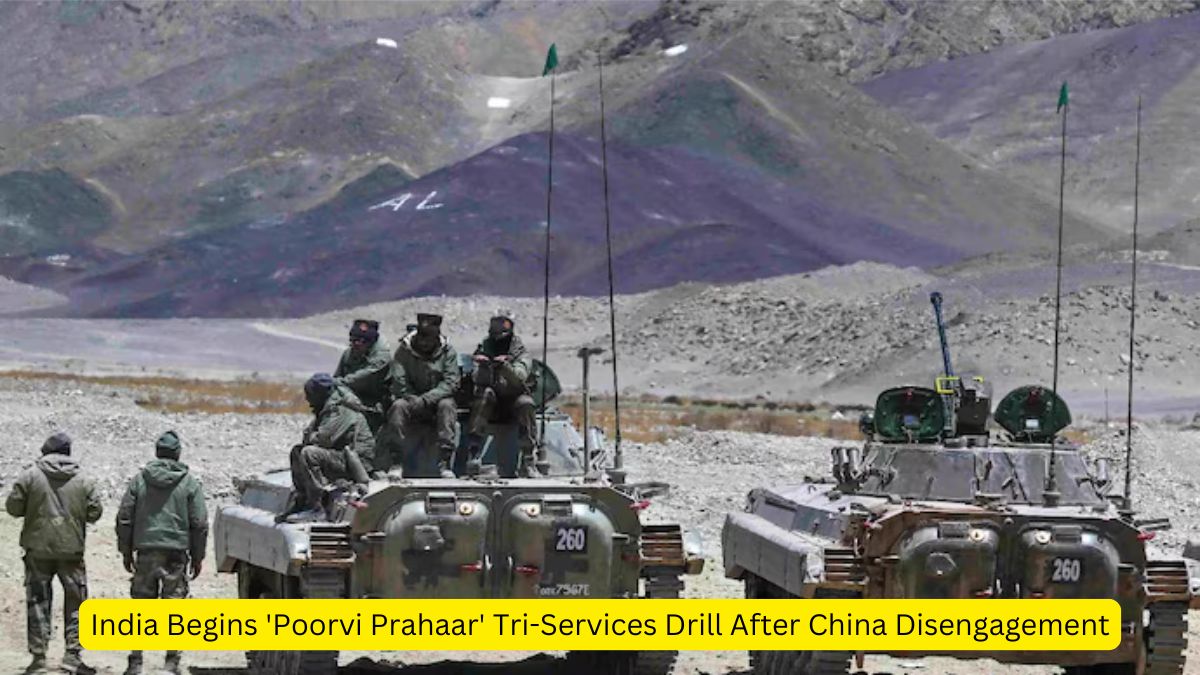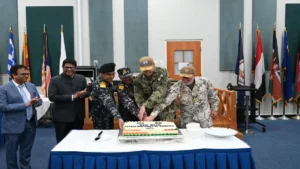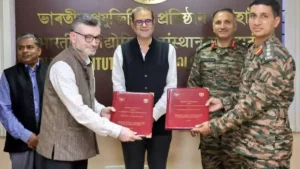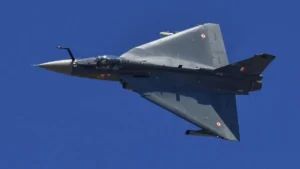India has launched a significant tri-services military exercise, ‘Poorvi Prahaar,’ beginning November 8, aimed at strengthening military readiness across the eastern front. This 10-day exercise follows the recent disengagement between Indian and Chinese troops at key friction points in eastern Ladakh, including Depsang and Demchok, and underscores India’s commitment to enhanced defense capabilities.
Key Details of ‘Poorvi Prahaar’ Exercise
- Launch Date: November 8, 2024
- Duration: 10 days
- Scope: Comprehensive tri-services military exercise
- Objective: To enhance operational synergy and assess combat readiness
- Context: Follows the recent disengagement between Indian and Chinese troops in eastern Ladakh (Depsang and Demchok)
Components of the Exercise
Indian Army
- Deployment of various military units
- Artillery guns, Light Combat Helicopters (LCH), and Unmanned Aerial Vehicles (UAVs)
Indian Air Force (IAF)
Aircraft Utilized,
- Su-30 MKI and Rafale fighters
- C-130J Super Hercules transport aircraft
- A variety of helicopters
- Air Force Bases Activated
- Kolkata, Hashirama, Paanagarh, and Kalaikunda
Indian Navy
- MARCOS (Marine Commandos) deployed, showcasing naval special operations capability
Strategic and Tactical Goals
- Assess the cohesive functioning of the Indian Army, Navy, and Air Force.
- Test the readiness of all three services, especially along India’s eastern border.
- Strengthen India’s defense capabilities in the eastern region, particularly in areas like the Line of Actual Control (LAC) with China.
Strategic Context and Regional Sensitivities
- The exercise comes after recent disengagement in eastern Ladakh (Depsang and Demchok) and amidst ongoing discussions between India and China.
- Key area of sensitivity due to the clash in December 2022 and restricted access for the People’s Liberation Army (PLA).
- India is balancing diplomatic efforts to engage China with enhancing its military capabilities along the LAC, ensuring sovereignty and security.
Rajnath Singh’s Visit
- The Defence Minister is expected to visit the Tawang sector during the Diwali celebrations.
- Purpose: Reinforce the government’s commitment to national security and coincide with the exercise preparations.
Significance of the Exercise
- Proactive Defense Strategy: This exercise demonstrates India’s shift toward a more proactive approach in securing its borders, particularly in light of the ongoing tensions with China.
- Strategic Messaging: The exercise serves as a signal of India’s readiness to defend its sovereignty while also pursuing diplomatic engagements to ease tensions.




 Indian Navy Assumes Command of Combined ...
Indian Navy Assumes Command of Combined ...
 Agneevasthraa Signs MoU with Indian Army...
Agneevasthraa Signs MoU with Indian Army...
 Defence Acquisition Council Clears ₹3.25...
Defence Acquisition Council Clears ₹3.25...








